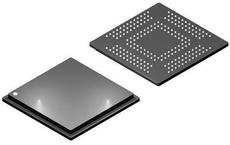The TPS65950 device is a highly integrated power-management and audio coder/decoder (codec) integrated circuit (IC) that supports the power and peripheral requirements of the OMAP™ application processors. The device contains power management, an audio codec, a universal serial bus (USB) highspeed (HS) transceiver, an AC/USB charger, light-emitting diode (LED) drivers, an analog-to-digital converter (ADC), a real-time clock (RTC), and embedded power control.
●The power portion of the device contains three buck converters, two controllable by a dedicated SmartReflex class-3 interface, multiple low-dropout (LDO) regulators, an embedded power controller (EPC) to manage the power-sequencing requirements of OMAP, and an RTC and backup module. The RTC can be powered by a backup battery when the main supply is not present, and the device contains a coin-cell charger to recharge the backup battery as needed.
●The USB module provides a HS 2.0 on-the-go (OTG) transceiver suitable for direct connection to the OMAP universal transceiver macrocell interface (UTMI) + low pin interface (ULPI) with an integrated charge pump (CP) and full support for the carkit Consumer Electronics Association (CEA)-936A specification.
●The Li-ion battery charger supports charging from AC chargers, USB host devices, USB chargers, or carkits. The device automatically detects the type of charger and provides hardware-controlled linear charging with AC chargers, USB chargers, and carkits, in addition to software-controlled charging for all charger types.
●The audio codec in the device includes five digital-to-analog converters (DACs) and two ADCs to provide multiple voice channels and stereo downlink channels that can support all standard audio sample rates through several inter-IC sound (I2S)/time division multiplexing (TDM) format interfaces. The audio output stages on the device include stereo headset amplifiers, two integrated class-D amplifiers providing stereo differential outputs, predrivers for line outputs, and an earpiece amplifier. The input audio stages include three differential microphone inputs, stereo line inputs, and interface for digital microphones. Automatic and programmable gain control is available with all necessary digital filtering, side-tone functions, and popnoise reduction.
●The device also provides auxiliary modules, including LED drivers, an ADC, a keypad interface, and general-purpose inputs/outputs (GPIOs). The LED driver can power two LED circuits to illuminate a panel or provide user indicators. The drivers also provide pulse width modulation (PWM) circuits to control the illumination levels of the LEDs. The ADC monitors signals entering the device, such as supply and charging voltages, and has multiple external ADC inputs for system use. The keypad interface implements a built-in scanning algorithm to decode hardware-based key presses and reduce software use. Multiple GPIOs can be used as interrupts when they are configured as inputs.


